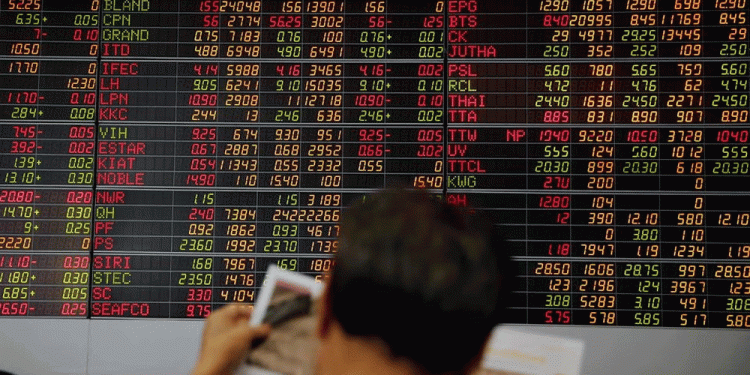LONDON: The Turkish lira hit a record low on Wednesday and local bond yields rose to fresh peaks on political strains and worries about the central bank’s ability to curb inflation.
The lira hit 3.98 against the dollar, coming under renewed pressure ahead of the US trial of Turkish gold trader Reza Zarrab, who is accused of violating US sanctions on Iran. The Turkish government have described the case as a “clear plot against Turkey”, which lacks any legal basis.
Foreign investors, which Turkey needs to finance its large budget and current account deficits, are also concerned about political pressure on the central bank, which is struggling to tame high inflation.
The falling lira has fuelled expectations of further central bank action as initial attempts to shore up the currency appeared to do little to stem the losses.
Said Haidar, president and chief executive officer of Haidar Capital Management, a $365 billion global macro hedge fund, said Turkey had fallen substantially behind the curve in terms of interest rate normalisation.
“We’re not very positive on Turkey in the near term — eventually hopefully enough pressure is brought to bear that they push rates up and the currency then does better,” he said. “It’s an ugly looking situation made worse by political issues.”
The yield on the benchmark 10-year local sovereign bond leapt to a record high of 13.52 percent and the average yield spread of Turkish sovereign dollar-denominated bonds over US Treasuries on the JPMorgan EMBI Global Diversified index held at their widest level since March.
But some Turkish banks’ dollar-denominated bonds continued to trade near multi-month lows, with Halkbank’s July 2021 issue at its lowest since end-March.
Turkish consumer confidence fell to 65.2 points in November, the lowest level this year, reflecting a pessimistic outlook.
The poor performance of Turkish assets contrasted with a rally elsewhere across emerging markets.
In currencies, the South African rand was up 0.4 percent and trading at near one-month highs, benefiting from the dollar’s retreat following dovish comments from US Federal Reserve Janet Yellen.
South African consumer inflation slowed as expected to 4.8 percent year-on-year in October.
Asian currencies were almost uniformly stronger, with Malaysia’s ringgit up 0.7 percent to a more than one-year high after central bank comments that the currency was “far from reflecting its fair value”.
But Mexico’s peso weakened 0.3 percent after the US, Mexico and Canada failed to resolve any major differences in a fifth round of NAFTA renegotiations.
MSCI’s benchmark emerging stocks index rose 0.5 percent to fresh six-year highs, led by Asian technology shares. Taiwan stocks touched 27-year highs and Hong Kong shares hit a decade peak.
In emerging Europe, Budapest shares led the pack, up 1.4 percent.
And the Hungarian forint weakened further against the euro, standing just off seven-month lows hit on Tuesday after the central bank took steps to further flatten the yield curve. A 13.5 percent surge in gross wages is not expected to deter the bank from its loose policy.
The Czech crown reached its strongest levels since June 2013, buoyed by expectations for continued central bank rate hikes, whilst the Polish zloty hit four-month highs.
Lebanon dollar bonds were mainly firmer and five-year credit default swaps fell 13 bps from Tuesday’s close to 553 bps, according to IHS Markit after Saad al-Hariri suspended his decision to resign as prime minister at the request of President Michel Aoun to allow for dialogue, easing a major political crisis.
In Zimbabwe, Emmerson Mnangagwa is set to return to the country and should be sworn in as president following the resignation of Robert Mugabe after nearly four decades in power.
Source: Brecorder.com



























